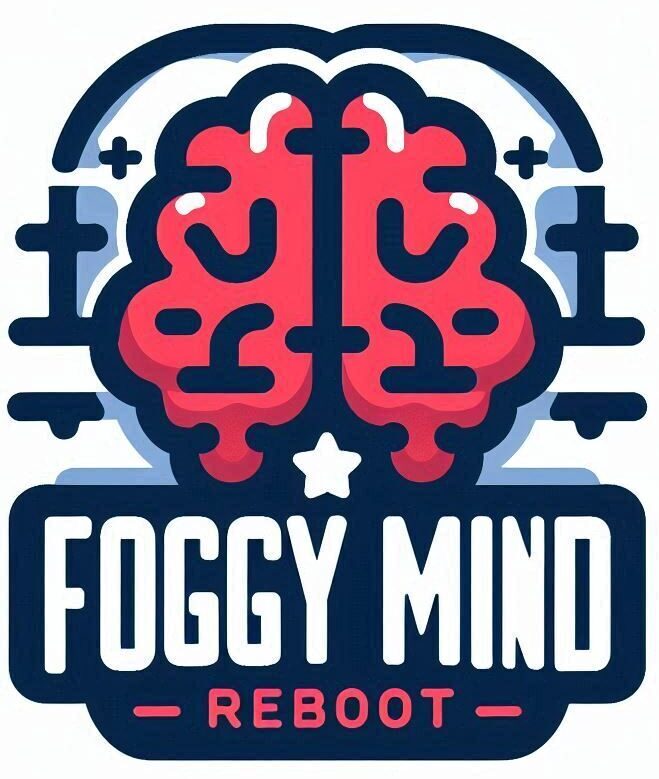Top Foods That Contribute to Brain Fog (And What to Eat Instead for Mental Clarity)

Ever feel like your brain is heavy with cobwebs, making it tough to think clearly? That’s what we call brain fog—a murky state where concentration, memory, and mental clarity seem to take a back seat. Diet plays a significant role in either sharpening or clouding your mind, and making better food choices can help you regain focus.
What is Brain Fog?
Brain fog isn’t a medical condition, but rather a set of symptoms like confusion, forgetfulness, and difficulty concentrating. You know those moments when you walk into a room and forget why you’re there? That’s brain fog in action. It’s that feeling of mental sluggishness that keeps you from performing at your best.
How Diet Impacts Brain Fog
The impact of diet on brain function is massive. Think of your brain like a high-performance car. You wouldn’t fill up a Ferrari with low-quality fuel and expect it to run smoothly, right? Similarly, what you eat fuels your brain. Poor dietary choices can slow you down, muddling your thoughts and dulling your sharpness.
Certain foods are known culprits when it comes to cognitive decline. Excess sugars, unhealthy fats, and highly processed items can contribute to brain fog by disrupting your blood sugar levels, increasing inflammation, and impairing communication between brain cells.
Top Foods That Can Cause Brain Fog
Some common food items can cause those moments of mental fogginess. Here’s a list of foods that can contribute to brain fog:

- Sugary Foods and Drinks
- While sweet treats might give you a quick energy boost, they’re also a major culprit behind brain fog. Consuming too much sugar spikes your blood glucose levels, leading to crashes that leave you feeling sluggish and mentally drained.
- Example: Sodas, candy, pastries.
- Trans Fats and Hydrogenated Oils
- Found in many fried foods, baked goods, and margarine, trans fats can cause inflammation in the brain, slowing down communication between brain cells. This results in delayed thinking and poor cognitive performance.
- Example: Fast food fries, packaged cookies, margarine.
- Processed and Refined Carbohydrates
- White bread, pastries, and other refined carbs quickly turn into sugar in your body. This contributes to blood sugar swings that can wreak havoc on mental clarity.
- Example: White bread, crackers, donuts.
- High-Sodium Foods
- Processed meats and canned soups are often loaded with sodium, which can lead to dehydration. Dehydration impairs cognitive function and leaves you feeling mentally foggy.
- Example: Deli meats, canned soups, frozen meals.
- Artificial Sweeteners and Additives
- While they might seem like a healthier choice, artificial sweeteners can trick the brain and lead to cognitive dysfunction. Chemicals like aspartame and MSG have been linked to headaches and brain fog in some people.
- Example: Diet sodas, sugar-free gum, flavored chips.
Scientific Backing for Diet and Cognitive Health
Numerous studies support the link between diet and brain health. For example, research from Harvard Health suggests that excessive sugar intake can impair memory and learning abilities. In another study, published in The American Journal of Clinical Nutrition, high consumption of trans fats was associated with a greater risk of cognitive decline.
Making Smarter Food Choices for Better Cognitive Health
To shake off brain fog, it’s crucial to make smarter food choices. Nutrient-rich foods are your brain’s best allies, providing it with the fuel it needs for optimal performance.
1. Leafy Greens
- Foods like spinach, kale, and arugula are packed with antioxidants and vitamins, particularly vitamin K, which has been linked to better brain function. Antioxidants help combat oxidative stress, which can damage brain cells over time.
- Example: Spinach, kale, Swiss chard.
2. Healthy Fats
- Omega-3 fatty acids found in nuts, seeds, and fatty fish (like salmon) are crucial for building and repairing brain cells. They also help improve memory and cognitive function by promoting communication between brain cells.
- Example: Walnuts, flaxseeds, salmon.
3. Hydration is Key
- Staying well-hydrated is essential for brain function. Dehydration can cause confusion, fatigue, and difficulty concentrating. Water is best, but herbal teas and water-rich fruits and veggies, like cucumbers and watermelon, can also help.
- Example: Water, cucumber, watermelon.
4. Balanced Meals for Consistent Energy
- Creating balanced meals that combine proteins, healthy fats, and complex carbohydrates can keep your energy levels stable throughout the day. Stable blood sugar levels help improve focus and clear up brain fog.
- Example: Grilled chicken with quinoa and avocado, or a mixed vegetable stir-fry with tofu and brown rice.
Actionable Tips to Reduce Brain Fog-Inducing Foods
Cutting back on brain fog-inducing foods is easier than you might think. Here are some quick swaps you can make to reduce brain fog:
- Swap sugary snacks for fresh fruits, like apples or berries, to keep your blood sugar stable.
- Opt for whole grains like brown rice or quinoa instead of refined carbs like white bread.
- Choose fresh, whole foods over processed items whenever possible. Whole foods provide essential nutrients without the additives and unhealthy fats that contribute to mental sluggishness.
Even small changes can lead to noticeable improvements in your mental clarity.
Conclusion: Clear Your Mind, One Bite at a Time
Brain fog doesn’t have to be a daily struggle. Understanding how diet links to brain fog is crucial for maintaining cognitive health. By making smarter food choices and steering clear of brain fog-inducing foods, you can sharpen your focus and boost mental clarity. The changes you make today will not only benefit your physical health but also keep your brain functioning at its best.
Remember: Your brain is your most important organ. Feed it well!
Sources:
- Harvard Health Publishing. “Sugar and Brain Health.” Harvard Medical School.
- Smith, P. J., et al. “Dietary Trans Fatty Acids and Cognitive Decline.” The American Journal of Clinical Nutrition, vol. 102, no. 1, 2015.
Click here for “Complete Support For Healthy Memory, Concentration And Mental Acuity”
Here’s a little transparency: Our website contains affiliate links. This means if you click and make a purchase, we may receive a small commission. Don’t worry, there’s no extra cost to you. It’s a simple way you can support our mission to bring you quality content.”

